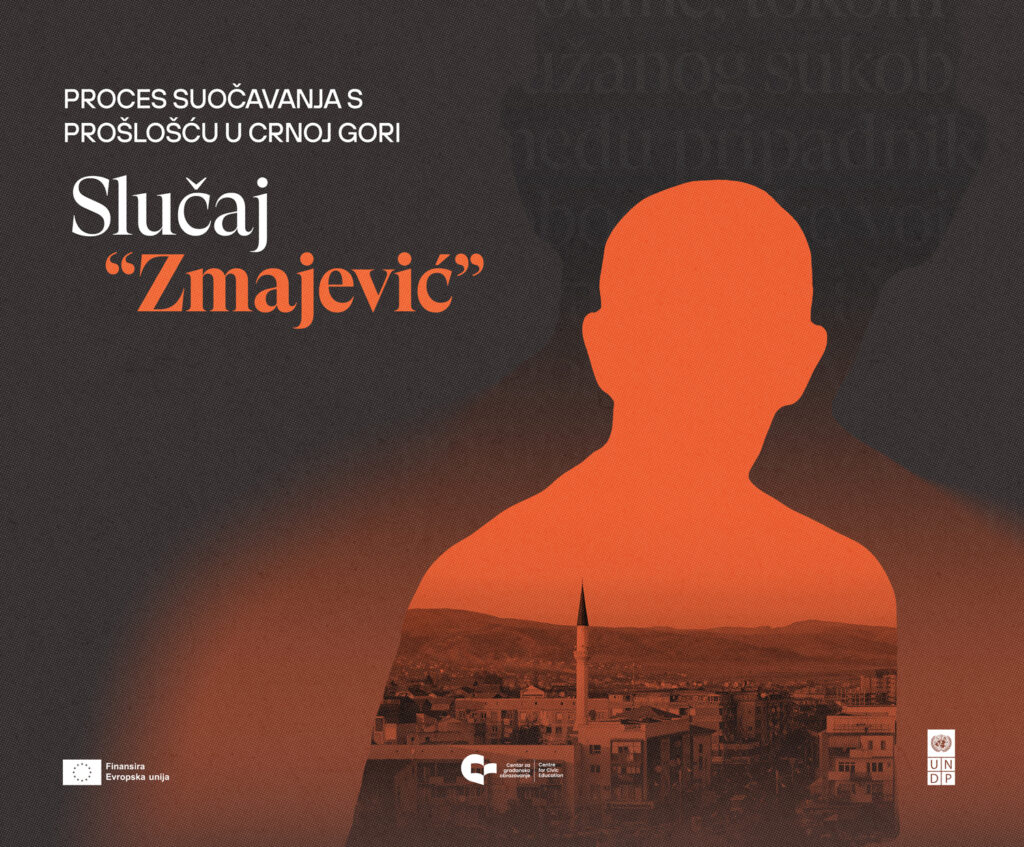Centre for Civic Education (CCE), as part of its ongoing efforts to provide a detailed insight into the facts related to prosecuted war crimes cases, has published a new compilation of court documents from the case known as “Zmajević”.
Through this publications, CCE offers to interested public, researchers, journalists, and legal professionals access to materials that shed light on the legal course of prosecuted war crimes cases, contributing to the development of more transparent and accountable institutional practices in the field of transitional justice. This is the sixth publication in this series, following the previously published cases of “Morinj,” “Bukovica,” “Kaluđerski Laz,” “Deportation,” and “The Klapuh Family.”
Vlado Zmajević joined the 3rd Infantry Battalion of the Yugoslav Army (YA) as a soldier and volunteer during the armed conflict between the Kosovo Liberation Army (KLA) and the YA. At the time, he was already a repeat offender with prison sentences in both Serbia and Montenegro for various criminal offenses. He had previously served in the 63rd Parachute Brigade of the Yugoslav Army. Documented evidence shows that he killed unarmed civilians of Albanian nationality and looted their property, thereby committing the war crime against the civilian population as defined by international humanitarian law and the Criminal Code.
Specifically, on 30 March 1999, while returning from the direction of the Macedonian border in Kosovo, Zmajević first killed shepherd Imer Kadriu in the village of Dunav, and then in the villages of Žegra killed Ćazim Haziri, Mijazim Idriziand Ćamila Haziri, subsequently stealing jewelry from their home.
This publication includes authentic court documents – such as the indictment, first-instance and final verdicts, and decisions of the Supreme Court – along with relevant evidence, witness testimonies, and medical findings that provide a detailed overview of the circumstances concerning this war crime. In addition to the victims’ families, Zmajević’s former comrades also testified against him, expressing their own shock at the brutality of the killings. His own statement, given during an investigation before the Military Court in Serbia in April 1999, also served as incriminating evidence.
The Special State Prosecutor’s Office (SSPO) filed an indictment against Vlado Zmajević in February 2017, based on reasonable suspicion that he had committed a war crime against the civilian population during the war in Kosovo. The first-instance verdict was handed down by the Special Chamber of the Higher Court in Podgorica on 5 June 2019, declaring Zmajević guilty and sentencing him to 14 years in prison. The Court of Appeals of Montenegro, deciding on the defense’s appeals, confirmed the verdict on 18 November 2019, thereby concluding the case with a final judgment two years after the indictment was filed and nearly two decades after the crime was committed. In September 2020, the Supreme Court rejected Zmajević’s appeal, ruling that there were no grounds for initiating a request for the protection of legality, thus upholding the decision of the State Prosecutor’s Office.
The Zmajević case is one of the few domestic war crimes trials in Montenegro to have reached such a judicial conclusion. Although the verdict holds symbolic and legal significance, the lengthy period between the crime and the indictment and sentencing points to serious weaknesses in the institutional response to war crimes.
The issue of political will, professional capacity, and the system’s readiness to confront past crimes remains unresolved when it comes to the prosecution of war crimes in Montenegro.
This publication is part of the CCE’s project “Education for the Future – Transitional Justice for Reconciliation”, within the regional programme EU Support for Confidence-Building in the Western Balkans, funded by the European Union (EU) and implemented by the United Nations Development Programme (UNDP). The content of this publication is the sole responsibility of the CCE and the authors and does not necessarily reflect the views of the EU or UNDP.
Itana Gogić, Programme Assistant

